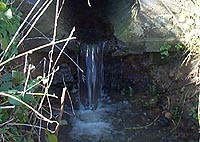Less pesticide in freshwater

THE LEVEL of pesticides found in rivers and reservoirs in England and Wales has decreased by 23%, according to figures published by the Environment Agency.
The findings come from the EA‘s annual pesticide monitoring programme and show that levels of the most commonly found pesticides in freshwater in 2003 were down by 23% when compared with the average for the previous five year period.
This decline in water pollution from pesticides could be down to a number of possible factors, according to the EA.
Farmers continue to improve the way they apply pesticides to their crops and fields to minimise impact on the environment under the Voluntary Initiative. These efforts may have resulted in lower levels of pesticides in freshwater.
But the low levels of rainfall in autumn 2003 may also have resulted in fewer pesticides being washed into rivers.
The top nine most frequently found pesticides in freshwater environments were all widely used herbicides including Mecoprop, Isoproturon and Diuron.
Of the top nine, only Chlorotoluron is rising in levels, as it is increasingly used to control grass weeds in cereals as some weeds become resistant to other pesticides.
Agriculture and horticulture account for more than 80 per cent of all pesticide use in England and Wales, according to the EA.
The report shows some positive results, in terms of protecting the environment from pesticides, but there are still areas of concern.
Sheep dip chemicals in particular are singled out by the EA as a significant and widespread problem impacting on river ecology and causing freshwater samples to fail to meet environmental quality standards.
Andy Croxford, EA pesticides policy manager, said: “The fact that the level of pesticides found in our rivers and streams has declined is encouraging, but there is no room for complacency.
“We cannot be certain whether the reduced levels are down to better use of pesticides, or how big a factor the dry weather has been.”
“That is why we will continue to monitor the situation closely and to work with farmers and other pesticide users, together with the wool processing industries, to build on the improvements that have already been achieved.
“We will be particularly targeting those involved in sheep dipping,” Mr Croxford said.

